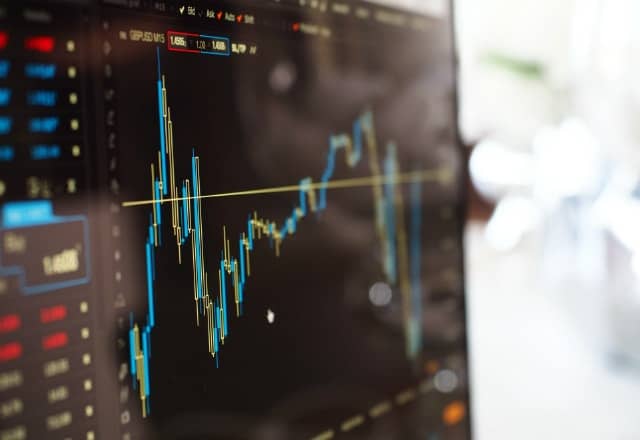(AOF) – Pernod Ricard and Kirin Brewery Company have signed an exclusive distribution agreement in continental Europe for FUJI, the highly regarded super-premium from the Kirin Brewery group. This agreement, effective since the beginning of July 2023, covers 13 European markets, including France, Italy, Poland and many countries in Central Europe. It may be extended to other countries at a later date. FUJI, produced in the brand’s historic distillery in Gotemba, a Japanese city, is available in three versions: Single Grain, Single Malt and Single Blended.
Internationally recognized, these whiskeys have each been awarded the gold medal of the International Spirits Challenge, a global competition whose last edition was held in May 2023.
Three years after its launch in Japan, FUJI is preparing to conquer the European markets thanks to Pernod Ricard’s vast distribution network. Over the past 10 years, premium Japanese whiskey (super-premium and above) has experienced, outside of Japan, an average annual growth of around 20% in volume, according to data from the IWSR (International Wine and Spirit Research).
AOF – LEARN MORE
Key points
– World number 2, behind Diageo, in wines and spirits, born in 1975 from the merger between Pernod, founded in 1805, and Ricard, in 1932;
– Activity of 10.7 billion euros, balanced between Europe (29% of sales), the 2 Americas (29%) and Asia (41%) and provided 63% by the 13 international strategic brands, 18% by the local strategic brands, 6% by specialty brands and 5% by strategic wines;
– Business model based on a decentralized organization between the head office, 6 brand companies -The Absolut Company, Chivas Borthers, Martell-Mumm-Perrier-Jouët, Irish Distillers, Havana Club International, Pernod Ricard Winemakers- and 5 market companies in support of international and local brands;
– Capital held at 14.06% (20.09% of voting rights) by the founding family, ahead of employees (2.3% and 1.77%) and the Brussels-Lambert group (7.6% and 12 .8%), Alexandre Ricard, Chief Executive Officer, chairing the 12-member board;
-Very healthy financial structure with net debt of €8.7 billion, the activity generating a cash flow of €2.5 billion.
Challenges
– “Transform & Accelerate” strategic plan with 4 accelerators – dedicated positioning for each brand, premium and luxury services, innovation and digital acceleration – and a tool – The Conviviality Platform to optimize the potential of brands and the distribution network through use data:
– annual growth of 4 to 7% in sales and 50 to 60 basis points in the operating margin;
– promotional expenses around 16%;
– “Transform & Accelerate” strategic plan with 4 accelerators -dedicated positioning for each brand, premium and luxury services, innovation and digital acceleration;
– A mission to cultivate the magic of human relationships by “preserving to share” with the ambition of driving and influencing the industry via a growth model based on digital and artificial intelligence the “conviviality platform”: collection and analysis data at the service of supply, in each market for the “right product at the right time, for the right consumer and at the right price”;
– Environmental strategy “S&R roadmap 2030” in 4 pillars: circular production with 50% reduction in CO2 emissions by 2030; 100% renewable electricity on production sites and 100% recyclable or compostable packaging by 2025 / preservation of the land through regenerative agriculture programs, support for + 10,000 farmers and through projects to maintain the biodiversity and water reuse / human enhancement with 0 gender pay gap achieved in 2022; responsible consumption, more than 134 million people reached by the “drink more… water” campaign.
– Segment not very dependent on household consumption, hence the rise in mature countries with strong positions in white spirits, rums and aniseeds (Ricard, No. 1 worldwide), whiskeys and liqueurs (No. 2) , cognacs, brandies and bitters (no. 3);
– launch of green loans and credit facilities;
– Strong pricing power giving visibility to profits and preservation of margins.
Challenges
– Strong seasonality: 2/3 of the activity achieved in the first half (July-December), 1/4 in December and sensitivity of profits to sales in Asia and the Americas;
– New e-commerce business unit (The Whiskey Exchange, Drinks&Co and Bodeboca);
-Positive impact of the rise of the dollar against the euro and increases in selling prices well accepted by consumers;
– fallout from industrial investments (6% of revenues) and promotional expenses (16%);
– After an 8% increase in sales over the first 9 months, 2022/23 objective of a 10% increase in operating profit, higher than that of revenues;
– Dividend of €4.12 and share buyback program of approximately €750m for 2021-2022 and interim dividend of €2.06 payable on July 7;
Find out more about the Agrifood sector
Soaring energy prices and a call for help
In the past, energy represented a fixed cost of 3% of turnover. This year, this percentage rises to 5% or even 7% for VSEs-SMEs, according to Ania (National Association of Food Industries). Professionals are very worried because until the end of 2022 they generally benefit from coverage to cushion these increases. However, they have not been renewed for 2023 and after. Consequently, 25 of the main inter-professional organizations (Intercereals, Inaporc, Semae, etc.) are calling on the State for help in the face of the erosion of their margins and their capacity to investment.
The State has proposed several devices, including an “electricity damper”, which are deemed insufficient. The organizations also deplore the failure of European negotiations to achieve a tariff shield to avoid distortions of competition. Agriculture and agri-food require a maximum ceiling price of €180/MWh, while many companies buy at prices above €500/MWh on the French market.
